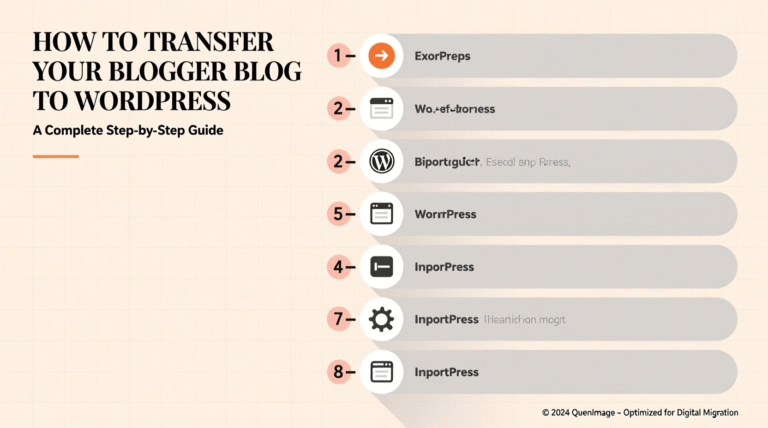What Are Backlinks and Why Are They Important for SEO?
In the world of digital marketing and search engine optimization (SEO), backlinks are often considered one of the most powerful ranking factors. But what exactly are backlinks, and why do they hold such importance in determining how a website performs in search engine results?
Whether you’re a business owner, content creator, or SEO specialist, understanding the role of backlinks can significantly impact your online visibility and growth strategy. In this blog post, we’ll break down what backlinks are, how they work, and why they’re essential for your website’s SEO.
What Are Backlinks?
Backlinks—also known as inbound links—are hyperlinks from one website to another. If website A includes a clickable link that leads to website B, then website B has earned a backlink from website A.
Backlinks serve as digital votes of confidence. They signal to search engines that another site finds your content valuable enough to reference, which can enhance your site’s credibility and authority.
Types of Backlinks
-
Do follow Backlinks: These are the default type and pass on SEO value or “link juice” from the referring site to the linked site.
-
No follow Backlinks: These links include a special HTML tag (
rel="no follow") that tells search engines not to follow or transfer link juice. While they don’t directly impact SEO rankings, they can still drive traffic.
Example:
If a well-known blog about digital marketing links to your article on social media strategy, that’s a do follow backlink. It not only drives traffic but can also improve your rankings.
How Do Backlinks Work?
Search engines like Google use complex algorithms to determine the quality and relevance of webpages. Backlinks are a crucial part of this algorithm.
Here’s how they help:
-
Link Equity (a.k.a. Link Juice): When a high-authority website links to yours, it transfers some of its authority, improving your own site’s trustworthiness.
-
Crawling and Indexing: Backlinks help search engine bots discover your site. If a page isn’t linked to from anywhere else on the web, it’s less likely to be indexed.
-
Relevance Signals: The content surrounding the backlink, especially the anchor text (the clickable part), helps search engines understand what your page is about.
Why Are Backlinks Important for SEO?
Backlinks are more than just digital referrals. They affect multiple areas of SEO:
1. Improved Search Engine Rankings
Search engines treat backlinks as endorsements. The more high-quality backlinks you have, the better your chances of ranking higher on results pages.
2. Faster Indexing
New websites or blog posts can be discovered more quickly through backlinks, especially from already indexed and high-authority sites.
3. Increased Referral Traffic
If someone clicks a backlink on another site and lands on yours, you gain targeted traffic. This can lead to more conversions and brand exposure.
4. Enhanced Domain Authority
While not a Google metric, tools like Moz and Ahrefs assign a domain authority score based on backlink profiles. A stronger authority typically correlates with better rankings.
Quality vs. Quantity of Backlinks
Not all backlinks are created equal. A few high-quality links can be far more effective than hundreds of low-quality ones.
High-Quality Backlinks Come From:
-
Reputable websites with high domain authority
-
Content that’s relevant to your niche
-
Natural, editorial placements (not forced or paid)
Low-Quality Backlinks Come From:
-
Spammy directories
-
Link farms
-
Irrelevant or suspicious sites
Google’s Penguin algorithm was designed to penalize websites using manipulative backlink strategies, making quality a critical factor.
How to Get Backlinks
Building backlinks isn’t about shortcuts; it’s about creating value that others want to reference. Here are proven strategies:

1. Create Link-Worthy Content
Infographics, in-depth guides, original research, and expert roundups naturally attract backlinks.
2. Guest Blogging
Writing articles for authoritative websites in your niche not only builds credibility but also earns you a link back.
3. Broken Link Building
Find broken links on other websites and suggest your content as a replacement. This helps both parties and is a common white-hat tactic.
4. Skyscraper Technique
Find high-performing content, create something better, and promote it to the same audience.
5. Build Relationships
Engage with bloggers, journalists, and influencers in your field. A strong network can organically lead to more mentions and links.
How to Monitor and Analyze Backlinks
To effectively manage your SEO strategy, keep track of your backlinks.
Top Tools:
-
Google Search Console: Free tool that shows who’s linking to you.
-
Ahrefs & SEMrush: Comprehensive backlink analysis, including competitor insights and lost links.
-
Moz Link Explorer: Great for tracking domain authority and link profiles.
Toxic Links and Disavow Tool:
Not all links help. If you’ve been targeted by spammy links, Google’s Disavow Tool allows you to ask the search engine to ignore them.
Common Backlink Myths
There’s a lot of misinformation floating around. Let’s clear up a few common myths:
Myth 1: More Backlinks Always Means Better SEO
Not true. A handful of authoritative, relevant links can outperform hundreds of weak or spammy ones.
Myth 2: All Backlinks Help Equally
Context, relevance, and the linking site’s authority all play roles in how much a backlink benefits your SEO.
Myth 3: Backlinks Are the Only SEO Factor
While important, backlinks are one of many ranking signals. Technical SEO, content quality, and user experience matter just as much.
Conclusion
Backlinks remain a cornerstone of any strong SEO strategy. They not only help search engines understand the authority and relevance of your website but also connect you with broader audiences, drive referral traffic, and increase your online reputation.
But earning backlinks is not about gaming the system—it’s about offering real value, building relationships, and contributing to your niche in meaningful ways.
If you’re just starting out, focus on creating high-quality content and building authentic connections. The backlinks—and the SEO success—will follow.






